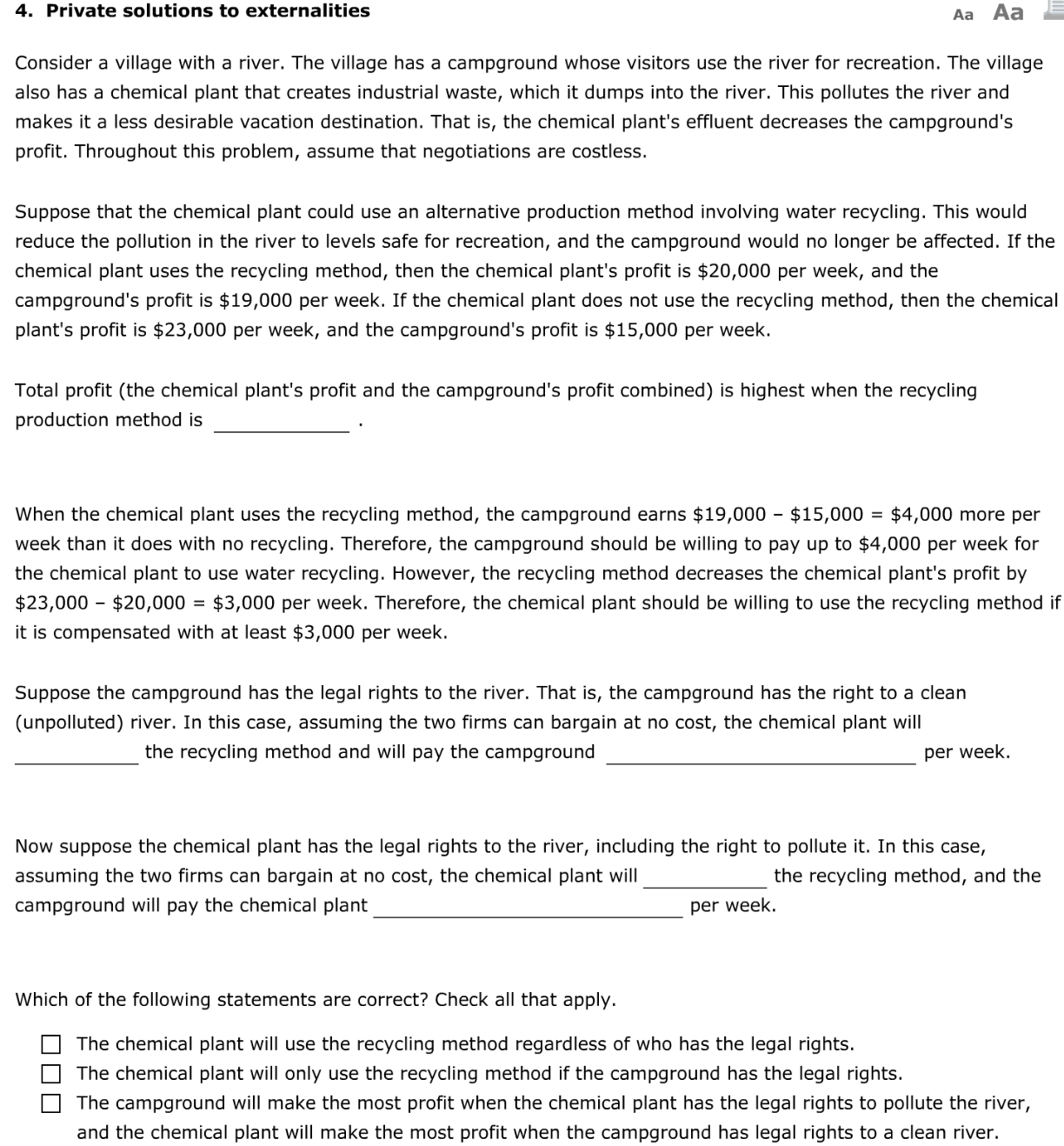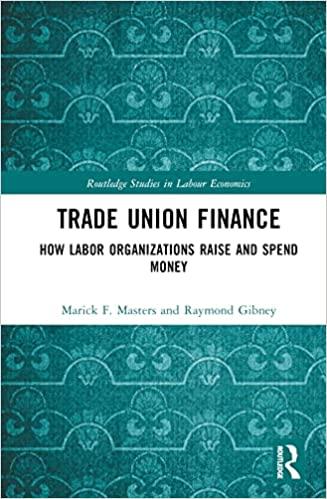
Consider a village with a river. The village has a campground whose visitors use the river for recreation. The village also has a chemical plant that creates industrial waste, which it dumps into the river. This pollutes the river and makes it a less desirable vacation destination. That is, the chemical plant's effluent decreases the campground's profit. Throughout this problem, assume that negotiations are costless. Suppose that the chemical plant could use an alternative production method involving water recycling. This would reduce the pollution in the river to levels safe for recreation, and the campground would no longer be affected. If the chemical plant uses the recycling method, then the chemical plant's profit is $20, 000 per week, and the campground's profit is $19,000 per week. If the chemical plant does not use the recycling method, then the chemical plant's profit is $23,000 per week, and the campground's profit is $15,000 per week. Total profit (the chemical plant's profit and the campground's profit combined) is highest when the recycling production method is When the chemical plant uses the recycling method, the campground earns $19,000 - $15,000 = $4,000 more per week than it does with no recycling. Therefore, the campground should be willing to pay up to $4,000 per week for the chemical plant to use water recycling. However, the recycling method decreases the chemical plant's profit by $23,000 - $20, 000 = $3,000 per week. Therefore, the chemical plant should be willing to use the recycling method if it is compensated with at least $3,000 per week. Suppose the campground has the legal rights to the river. That is, the campground has the right to a clean (unpolluted) river. In this case, assuming the two firms can bargain at no cost, the chemical plant will the recycling method and will pay the campground per week. Now suppose the chemical plant has the legal rights to the river, including the right to pollute it. In this case, assuming the two firms can bargain at no cost, the chemical plant will the recycling method, and the campground will pay the chemical plant per week. Which of the following statements are correct? Check all that apply. The chemical plant will use the recycling method regardless of who has the legal rights. The chemical plant will only use the recycling method if the campground has the legal rights. The campground will make the most profit when the chemical plant has the legal rights to pollute the river, and the chemical plant will make the most profit when the campground has legal rights to a clean river







